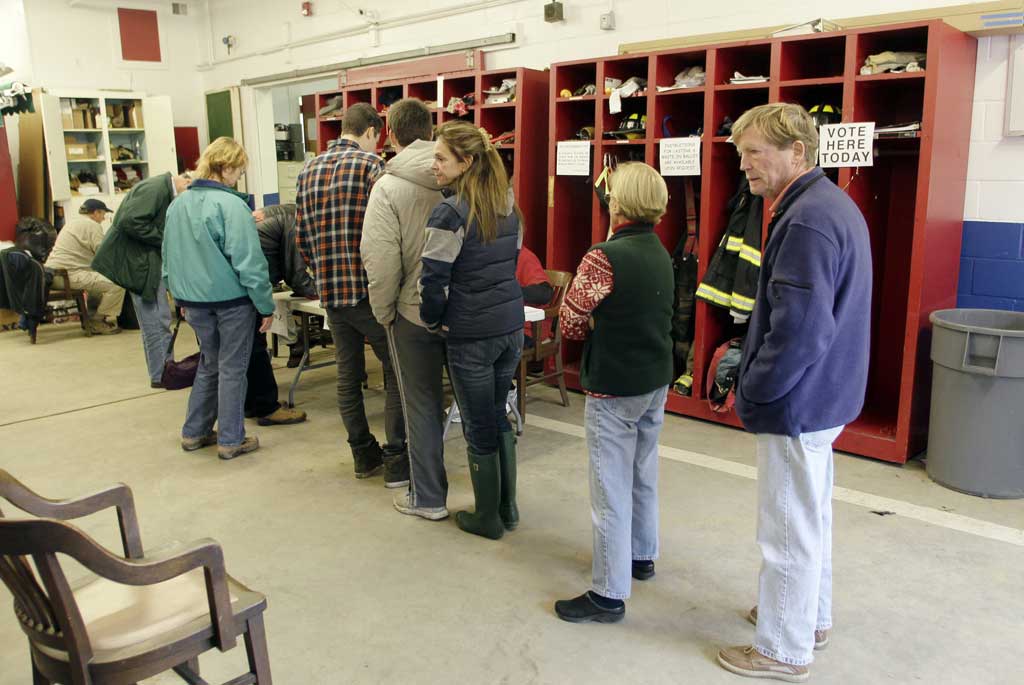Boyd Tonkin: US election was a good night for the geeks - and a Tunbridge Wells cleric
The Week in Books

Anyone who tracked the US election campaign in the hope of enlightened debate over the great global issues of the age will soon have lost the will to live (or vote). However, on a tighter intellectual canvas, I enjoyed a pretty invigorating month. Nate Silver's game-changing FiveThirtyEight forecasting outfit has delivered a masterclass in the potential, and the limits, of political soothsaying. By Tuesday, Silver had the percentage probability of victory as 91-9 in favour of Obama. He didn't quite hit the bull's-eye with electoral-college votes, calling it 313-225 for the President. At the same time, the media kept up the dutiful fiction of a "cliffhanger". It was not.
Through the breadth of its sources, the detail of its analysis, the self-critical attention to its own methods and its speed and finesse in correcting for rogue results in the aggregation of polling data, FiveThirtyEight has set a standard that every other opinion-assessor will need to study. It's not rocket science - but it is the sustained, high-level application of probabilistic reasoning. As Silver acknowledges, his techniques owe much to a posthumously-published paper by an obscure Tunbridge Wells minister of the mid-18th century: "An Essay towards Solving a Problem in the Doctrine of Chances" by Thomas Bayes. Thanks to Bayesian principles, as Silver puts it in his deeply geeky but still engrossing book The Signal and the Noise: the art and science of prediction (Allen Lane, £25), "we can strive to be less subjective, less irrational, and less wrong". In practice, after Silver's intense road-testing of his theories, it began to look pretty clear that headline claims of a knife-edge, neck-and-neck race were baloney. Even a month ago, after the President's TV-debate débâcle in Denver, Silver still had the probability of his re-election at 62-38 per cent.
From baseball to poker, storms to earthquakes, credit crises to terrorist attacks, The Signal and the Noise argues that effective forecasting or even prediction (a stronger category for Silver) depend to a large degree on switching off the human propensity to spot shapes, patterns and meanings in data sets. They will often mislead and deceive: mere "noise". "Foxy forecasters", in contrast, know their limits, make use of prior experience, but continuously revise their assumptions. They know that "the key is determining whether the patterns represent noise or signal". Short-term weather forecasting - the closest this book comes to a genuine success story - has painfully learned to do that, as it shows that "chaos theory is a demon that can be tamed". As for the economic forecasters, many would be better off with tea-leaves and chicken guts.
On earthquakes, the book explains why the trial of scientists in the wake of the L'Aquila disaster in Italy in 2009 was a medieval absurdity. After his survey of the slow advances in seismic forecasting, Silver accepts "the Holy Grail of earthquake prediction will never be attained".
Which brings us to the celebrated bird whose shadow falls over his book, the "Black Swan": those extreme, outlier events that defy augury, and which Nassim Nicholas Taleb hunted down in his book of that name. Silver's Bayesian recipes work best in data-systems where Black Swans can never strike. Indeed, it was notable how, after Superstorm Sandy hit with all its Black Swan fury, the FiveThirtyEight blog sought to deny that this rampant outlier of a tempest could sway many voters at all.
It would be an error to set up Taleb simply as the nemesis of Silver. The latter seeks to help us make better forecasts. The former, as his forthcoming book Antifragile will argue, offers ways to think and act that embrace risk and surf uncertainty, whatever the strength of any prediction. Nonetheless, I would love to see the pair debate. What are the chances of that?
World-beating: Big History goes for broke
A massive deal (£1m. by some reports), a long haul (it's due no earlier than 2018), a big splash, a humongous theme: the projected "biography" of The World by Simon Sebag Montefiore for Weidenfeld & Nicolson shows that the book trade can still plan future projects on a Pharaonic scale. The sales triumph of his portrait of Jerusalem stiffened hopes that the market for page-turning, high-concept Big History has survived. The World will go for broke on that score. Inspiring ambition? Crazy hubris? Watch this space - but not very soon.
Ferrari wins Goncourt's grand prix
In this week's other momentous decision, announced as always at the Drouot restaurant in Paris, the Goncourt Prize has gone to Jérome Ferrari for his novel The Sermon on the Fall of Rome. The winning book in this year's contest for France's most august - and most sales-boosting - award for fiction is set in a bar in Corsica, where the novelist and philosophy teacher (now based in Abu Dhabi) used to live. It tells in almost fable-like form of the pitfalls and perils of utopian dreams (not so far from the US elections, maybe). In this country, MacLehose Press has just published a translation of Ferrari's Where I Left My Soul: one of several major French novels that over the past few years have, belatedly, tried to come to terms with the Algerian war, its dehumanising cruelties and its traumatic aftermaths. We'll have a review of the book next week.
Join our commenting forum
Join thought-provoking conversations, follow other Independent readers and see their replies
Comments
Bookmark popover
Removed from bookmarks